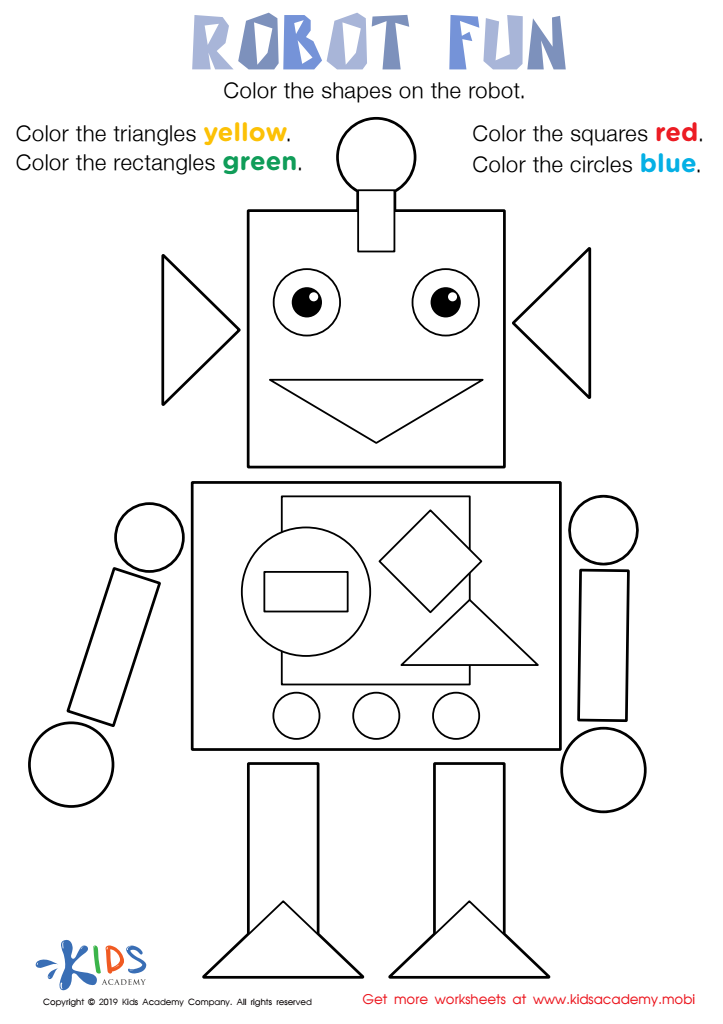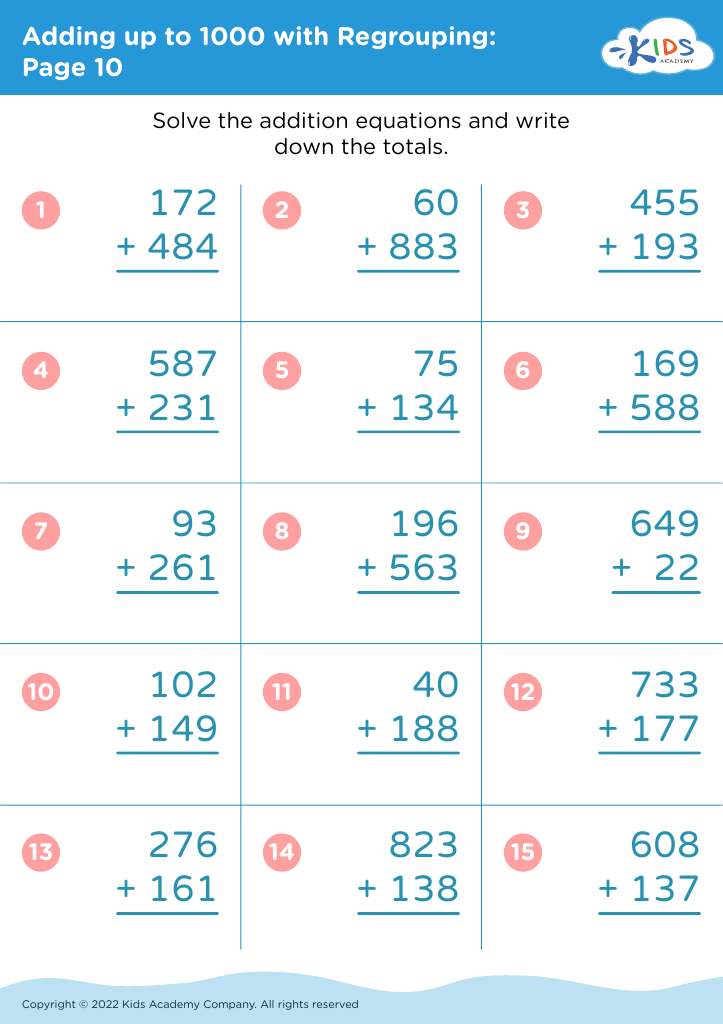Developing fine motor skills Math Worksheets for Ages 7-9
3 filtered results
-
From - To
Enhance your child's fine motor skills while strengthening their math abilities with our engaging worksheets designed specifically for ages 7-9. These printable resources combine fun activities with essential math concepts, allowing young learners to improve their dexterity through tracing, cutting, and coloring. Each worksheet encourages precision and control, fostering coordination and confidence in their academic journey. Perfect for home or classroom use, our worksheets cater to various learning styles and paces, making math enjoyable and interactive. Explore our collection today to support your child's development and watch them thrive both in skills and in confidence!


Robot Fun Worksheet
Developing fine motor skills is crucial for children aged 7-9, particularly in mathematics, as it enhances their ability to manipulate tools and materials essential for learning. At this age, children are often introduced to more complex math concepts that require precise hand movements, such as measuring, drawing geometrical shapes, or handling manipulatives for problem-solving. Improved fine motor skills enable children to write more neatly, align numbers accurately, and carry out equations with confidence.
Engaging in activities that foster fine motor skills—such as using scissors, threading beads, or building with blocks—also promotes concentration and coordination, both of which are important for mathematical reasoning. Furthermore, when children are more adept at handling materials, they experience greater success in hands-on math activities, which can enhance their overall enthusiasm towards learning.
For parents and teachers, it’s essential to create opportunities for fine motor development through playful yet structured activities. Understanding the connection between fine motor skills and math competence empowers adults to support children’s growth in a holistic manner, ultimately leading to better academic outcomes and a positive attitude towards mathematics. Investing time in these skills ensures that children are well-prepared to tackle both academic challenges and everyday tasks that require precision and dexterity.

 Assign to My Students
Assign to My Students


















